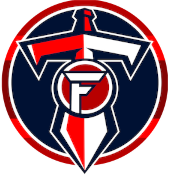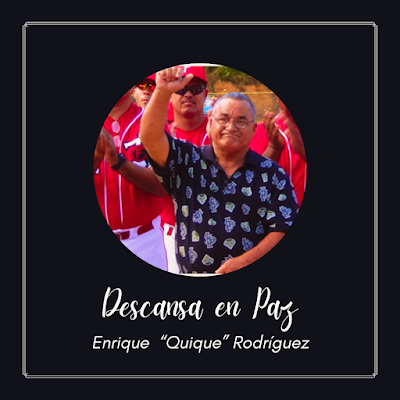A escena las series semifinales de sección
28 de mayo de 2025 por Hector Titito Rosa
La postemporada 2025 de la Liga de Béisbol Superior Doble A entra en su primera fase este jueves y viernes, con el inicio de las series semifinales de sección, pautadas para un máximo de cinco juegos.
El torneo, que comenzó con 45 equipos, ahora cuenta con 32 novenas en contienda. Las semifinales de sección definirán los 16 equipos que avanzarán a las series finales de sección.
El primer fin de semana de las semifinales constará de tres juegos, mientras que el segundo fin de semana incluirá dos partidos adicionales, de ser necesarios.
Norte
Los campeones defensores Titanes de Florida continuarán la búsqueda del bicampeonato ante los Tigres de Hatillo, quienes aseguraron por primera vez el liderato de sección. En la serie B, los Montañeses de Utuado se enfrentarán a sus archirrivales Arenosos de Camuy en el clásico norteño.
Sureste
Los subcampeones Azucareros de Yabucoa se medirán en la semifinal A con los Grises de Humacao, sobrevivientes del juego de reto interseccional frente a Loíza. En la serie B, los Samaritanos de San Lorenzo enfrentarán a los Leones de Patillas.
Este
Los Artesanos de Las Piedras jugarán ante los Guerrilleros de Río Grande, líderes de sección por primera vez desde 1979. En la otra serie, se verán las caras los Cariduros de Fajardo y los campeones de sección Mulos de Juncos, quienes finalizaron la fase regular con la mejor efectividad colectiva (1.69).
Sur
Los Peces Voladores de Salinas, campeones de la sección por cuatro años consecutivos, tendrán una dura prueba ante los Bravos de Cidra, que eliminaron a Guayama en un juego de reto para entrar a la sección Sur. En la semifinal B, se enfrentarán los vecinos Maratonistas de Coamo y Potros de Santa Isabel.
Suroeste
Los líderes Cardenales de Lajas jugarán ante los Petroleros de Peñuelas, mientras que los Petateros de Sabana Grande chocarán con los campeones de sección, Piratas de Cabo Rojo.
Central
Los Polluelos de Aibonito enfrentarán a los Pescadores del Plata de Comerío, el mejor equipo de la fase regular con marca de 17-3. En la serie B, los Toritos de Cayey expondrán una racha de seis victorias frente a los Criollos de Caguas, clasificados por primera vez desde su retorno en 2023. Caguas ha ganado 11 de sus últimos 12 juegos, todos de manera consecutiva.
Metro
Los líderes Mets de Guaynabo, dirigidos por Juan “Igor” González y con Roberto Alomar como apoderado, se enfrentarán a los Guardianes de Dorado, franquicia de Yadier Molina. En la serie B, los Lancheros de Cataño se medirán al Melao Melao de Vega Baja, que regresa a la postemporada tras 13 años de ausencia.
Noroeste
Los líderes Patrulleros de San Sebastián enfrentarán a los Libertadores de Hormigueros en la semifinal A, mientras en la serie B, los Fundadores de Añasco chocarán con los Tiburones de Aguadilla.
Detalles importantes de la postemporada:
– Se elimina la regla del ‘tie breaker’ (corredores en primera y segunda en entradas extras).
– Se elimina la regla de ‘curfew’ en juegos nocturnos.
– Los juegos pueden reasignarse hasta el martes.- Si un juego se suspende por lluvia, se jugará al día siguiente. No se celebrará el juego #2 sin haberse completado el #1.
– Todo juego en curso suspendido por lluvia se continuará.
Si se detiene entre la 1ra y 6ta entrada, continuará en el mismo estadio.
Si se detiene a partir de la 7ma entrada, se reanudará en el estadio donde se jugaría el próximo partido de la serie.
Calendario – Primer fin de semana Series Semifinales de Sección
Jueves, 29 de mayo – 8:00 PM
Florida vs. Hatillo (en Camuy)
Viernes, 30 de mayo – 8:00 PM
Hatillo en Florida
Utuado en Camuy
Aibonito en Comerío
Caguas en Cayey
Humacao vs. Yabucoa (en Humacao)
San Lorenzo vs. Patillas (en Arroyo)
Cidra en Salinas
Coamo en Santa Isabel
Hormigueros en San Sebastián
Aguadilla en Añasco
Peñuelas en Lajas
Sabana Grande en Cabo Rojo
Las Piedras en Río Grande
Juncos en Fajardo
Dorado en Guaynabo
Vega Baja en Cataño
Sábado, 31 de mayo – 7:30 PM
Florida vs. Hatillo (en Camuy)
Camuy en Utuado
Comerío en Aibonito
Cayey en Caguas
Yabucoa en Humacao
Patillas en San Lorenzo
Salinas en Cidra
Santa Isabel vs. Coamo (en Santa Isabel)
San Sebastián en Hormigueros
Añasco en Aguadilla
Lajas en Peñuelas
Cabo Rojo vs. Sabana Grande (en Lajas)
Río Grande en Las Piedras
Fajardo en Juncos
Guaynabo en Dorado
Cataño vs. Vega Baja (en Vega Alta)
Domingo, 1 de junio
Utuado en Camuy – 6:00 PM
Aibonito en Comerío – 3:00 PM
Caguas en Cayey – 4:00 PM
Humacao vs. Yabucoa – 5:00 PM (en Humacao)
San Lorenzo vs. Patillas – 4:00 PM (en Arroyo)
Cidra en Salinas – 4:30 PM
Coamo en Santa Isabel – 4:00 PM
Hormigueros en San Sebastián – 3:00 PM
Aguadilla en Añasco – 4:00 PM
Peñuelas en Lajas – 4:30 PM
Sabana Grande en Cabo Rojo – 4:30 PM
Las Piedras en Río Grande – 5:30 PM
Juncos en Fajardo – 5:00 PM
Dorado en Guaynabo – 4:00 PM
Vega Baja en Cataño – 3:00 PM
















